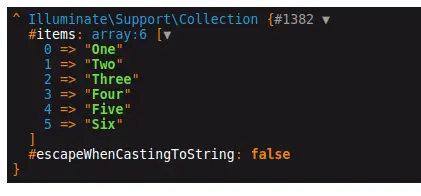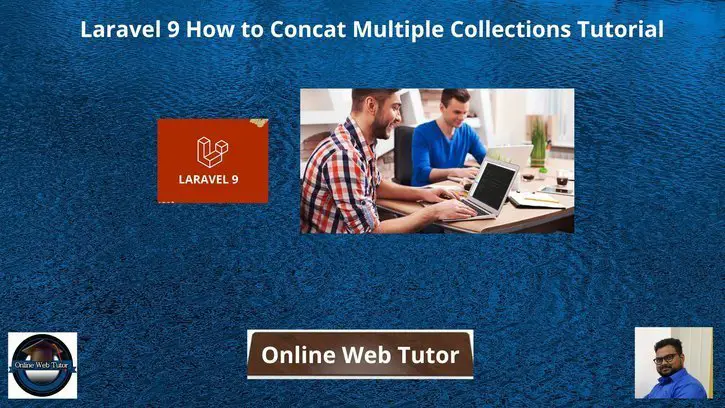Inside this article we will see the use of concat() method in laravel 9 collections. Article contains a very classified information about the basic concept of Laravel 9 How to Concat Multiple Collections Tutorial.
We will concat two or more collections in laravel.
The Illuminate\Support\Collection class provides a fluent, convenient wrapper for working with arrays of data. For example, check out the following code. We’ll use the collect helper to create a new collection instance from the array.
Read More: jQuery Remove All Numbers From String Example Tutorial
As mentioned above, the collect helper returns a new Illuminate\Support\Collection instance for the given array.
So, creating a collection is as simple as:
$collection = collect([1, 2, 3]);Let’s get started.
Laravel Installation
Open terminal and run this command to create a laravel project.
composer create-project laravel/laravel myblogIt will create a project folder with name myblog inside your local system.
To start the development server of laravel –
php artisan serveURL: http://127.0.0.1:8000
Assuming laravel already installed inside your system.
Use of Collection concat() Method
We will see how to use concat() method of collection.
Read More: Laravel 9 Time Format into AM PM Using Carbon Tutorial
Suppose we have SiteController.php a controller file inside /app/Http/Controllers folder.
<?php
namespace App\Http\Controllers;
use Illuminate\Http\Request;
class SiteController extends Controller
{
public function index()
{
$collectionA = collect(["One", "Two"]);
$collectionB = collect(["Three", "Four"]);
$collectionC = collect(["Five", "Six"]);
$collection = $collectionA->concat($collectionB)->concat($collectionC);
dd($collection);
}
}
Concept
$collection = $collectionA->concat($collectionB)->concat($collectionC);Output

We hope this article helped you to learn Laravel 9 How to Concat Multiple Collections Tutorial in a very detailed way.
Read More: How To Download File Using jQuery Example Tutorial
Online Web Tutor invites you to try Skillshike! Learn CakePHP, Laravel, CodeIgniter, Node Js, MySQL, Authentication, RESTful Web Services, etc into a depth level. Master the Coding Skills to Become an Expert in PHP Web Development. So, Search your favourite course and enroll now.
If you liked this article, then please subscribe to our YouTube Channel for PHP & it’s framework, WordPress, Node Js video tutorials. You can also find us on Twitter and Facebook.
